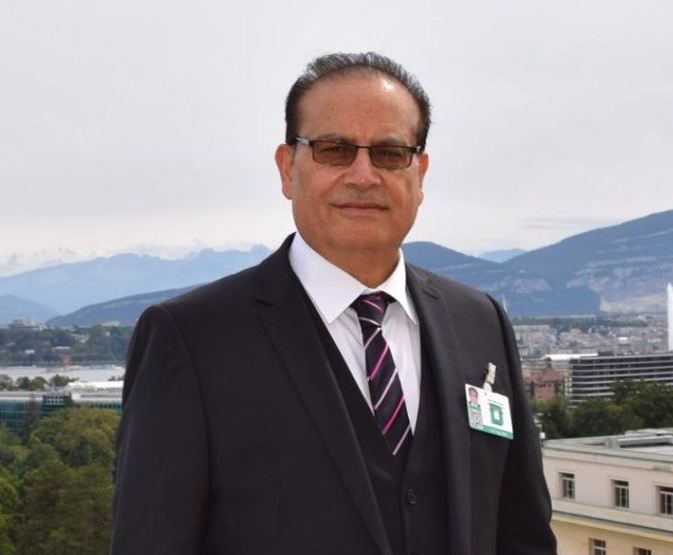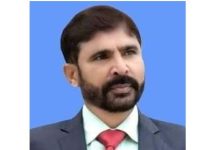By: Qamar Bashir
The entire proceeding of the Supreme Court on the Sunni Ittehad Council’s petition seeking the allocation of reserved seats for women and minorities in the National and Provincial Assemblies seemed like a clash between the Chief Justice and the rest of the bench. The Chief Justice used the strength and power of his argument to assert that PTI’s failure to conduct intra-party elections was the root cause of their predicament. Consequently, all actions taken by the Election Commission and the subsequent Supreme Court decision to deprive PTI of the BAT election symbol were seen as the party’s own fault. The Chief Justice argued that PTI should accept the repercussions of their mistakes.
During the hearing, a stage was reached where the Chief Justice seemed completely cornered by his fellow judges. The brother judges negated the Chief Justice’s interpretation of his own judgment. The Chief Justice maintained that even when PTI was deprived of the BAT symbol, individual candidates could have demanded it as their election symbol.
The majority of the judges argued that if BAT were allocated to any party or independent candidate, it would have resulted in a contempt of court case. Justice Munib was particularly incisive, categorically stating that, according to the Supreme Court judgment and contrary to what the Chief Justice was now arguing, the BAT symbol was off the list for this general election.
An interesting scenario was painted by a brother judge: the Election Commission, knowing that the SIC did not contest the elections and recognizing that all independents who joined the SIC belonged to PTI, implicitly recognized the existence of PTI. Therefore, the EC should have allocated the reserved seats to PTI, effectively removing the SIC from the picture.
A recurring question was whether the SIC contested the elections, to which the answer was a resounding no. This led to heated arguments about how a party that did not contest the elections could claim reserved seats. Without giving the lawyers a chance to address this question, one of the brother judges provided a prompt answer saying that according to a notification from the Election Commission, the SIC was accepted as a registered political and parliamentary party on February 22, 2024, having won 82 seats. Therefore, as per the constitution and the Election Act, the independents who had joined the SIC within three days under Article 51 of the constitution were entitled to claim reserved seats for women and minorities in the National and provincial assemblies.
The lady lordship raised another pertinent question: if independent candidates, other than those of the SIC, have joined parties other than PTI, then why have the independents of PTI who joined the SIC not been accepted so far? Another brother judge raised an equally important question, noting that the ECP first declared the SIC a parliamentary party and asked PTI’s independents to join, which they did within three days, the ECP turned around and stated that since the SIC does not qualify as a political party, it cannot be granted the reserved seats.
The question of proportional representation was raised repeatedly. One argument was that, under the constitution, the allocation of reserved seats must be based on the seats won and secured in the national and provincial assemblies. Thus, they can only be allocated based on seats won, and independent candidates must join a political party within three days of the election to claim reserved seats. However, this argument was deeply contested by the Chief Justice, who believed that, as per the constitution, the National Assembly would only be considered complete when all reserved seats are allocated to political parties. According to him, independent candidates, regardless of their number, cannot claim reserved seats. The Chief Justice argued that candidates contest elections based on their party’s manifesto, and if they join another party with a different manifesto, it disrespects the people’s mandate. However, the brother judges refuted this, arguing that it would be a greater crime to disrespect the people’s mandate by failing to distribute reserved seats proportionally based on seats won or secured.
Justice Athar Minullah interjected with a broader philosophical view, stating that the biggest stakeholders in this case are the public and the voters, who cannot be disenfranchised. He emphasized that it was the duty of the Election Commission to ensure this right under Article 70 and that the EC should have rectified its mistake by itself, instead of depriving the people of their rights.
He further argued that instead of protecting their rights to vote, these very voters were intimidated and harassed, and one political party was singled out. The state’s brute power was employed to crush the party and its leadership, depriving it of a free hand and level playing field to contest the elections. It was argued that since voters have the fundamental right to cast their vote according to their conscience, and political parties have the right to contest elections in a fear-free environment, both of these rights were violated. Therefore, the Supreme Court, as the guardian of fundamental rights, should play its role in rectifying the wrong done to both the voters and the political party. However, this line of argument was brushed aside by the Chief Justice, who interjected that the bench had to confine itself within constitutional limits and should not indulge in endless discussion.
One stark reality that emerged from the two days of highly contested hearings was the Supreme Court’s misconstrued judgment, authored by the Chief Justice, which deprived PTI of its election symbol. This forced PTI candidates to contest elections as independents, causing the party to lose significant political capital. It made it difficult for candidates to launch effective election campaigns and created confusion among voters trying to identify PTI candidates. Furthermore, the process of allocation of reserved seats was seen by almost all the brother judges to be full of errors, omissions, and faulty conclusions. One of the judges even stated that the Supreme Court should not rubber-stamp the cascade of errors and omissions made by the Election Commission. However, the Chief Justice countered by asserting that everything could have fallen into place if PTI had conducted intra-party elections.
After diligently and carefully observing both sides, one can predict the upcoming judgment. The court may decide to allocate the share of the reserved seats in both the National and Provincial Assemblies to the SIC after taking them back from other political parties. Another likely scenario is a split verdict from the full bench, which may restore PTI as a party in the National and Provincial Assemblies and allocate the reserved seats to it. A third, extremely unlikely scenario would be to uphold the decision of the Election Commission and maintain the status quo.
By: Qamar Bashir
Former Press Secretary to the President
Former Press Minister to the Embassy of Pakistan to France
Former MD, SRBC












